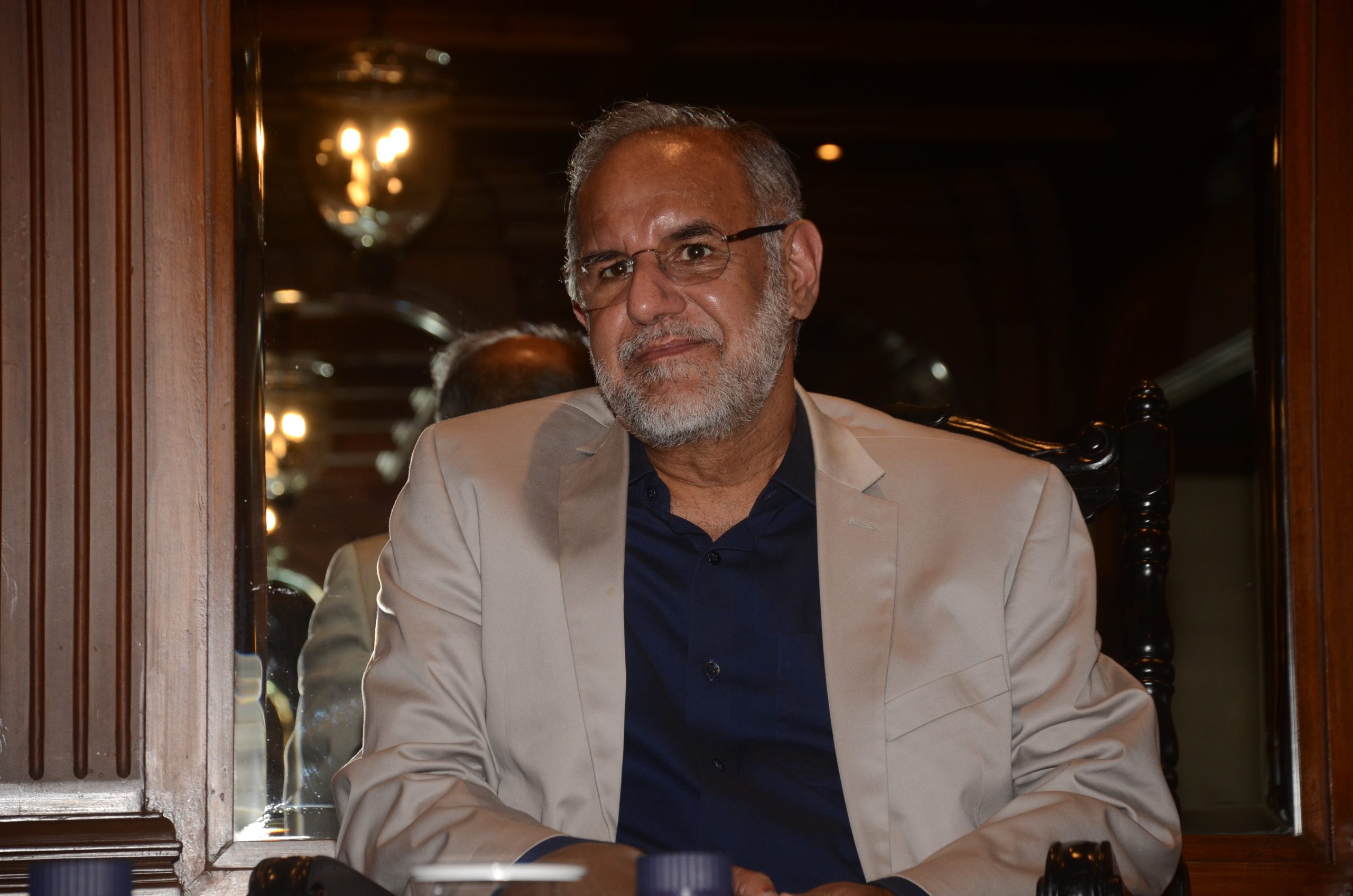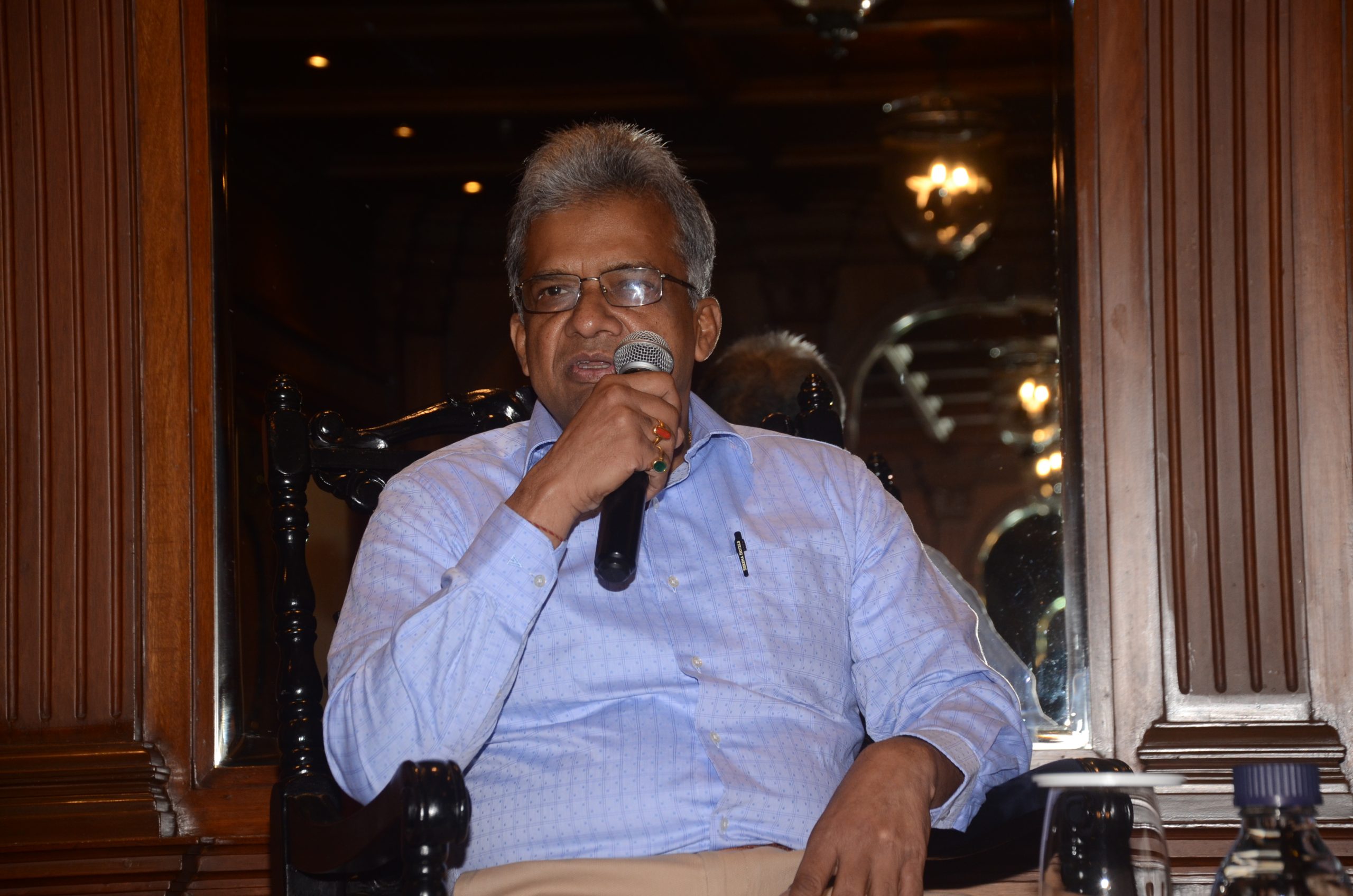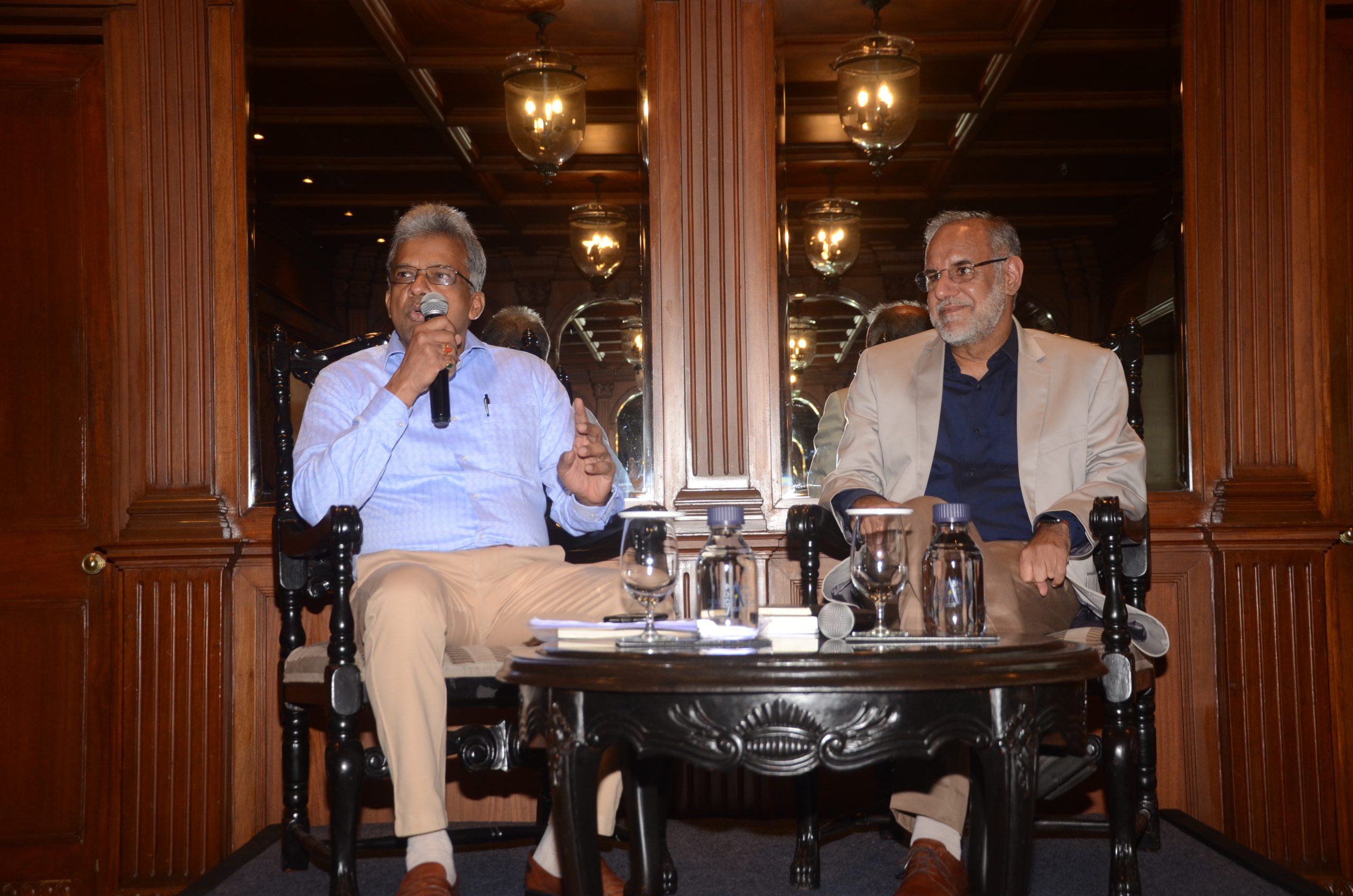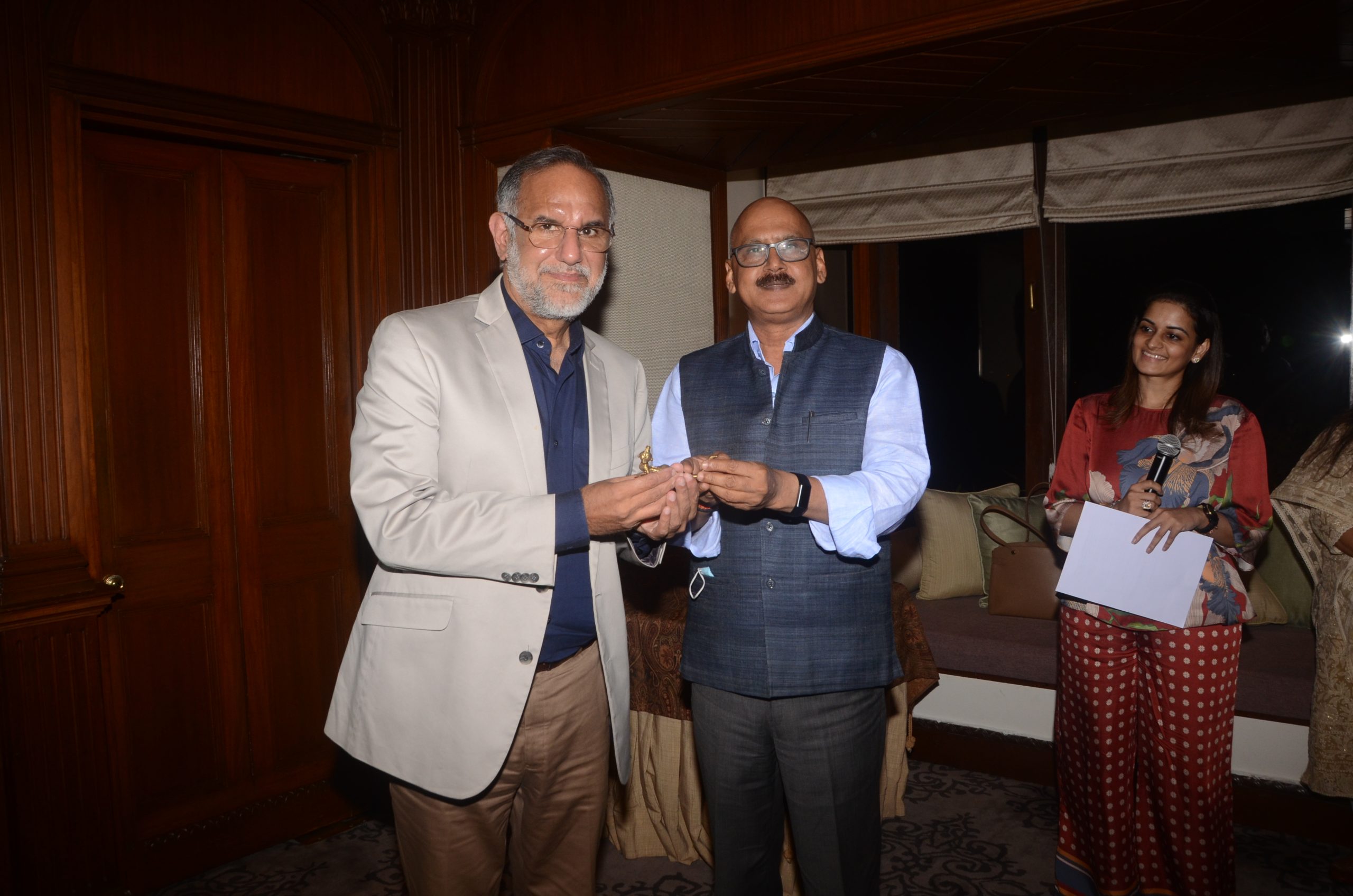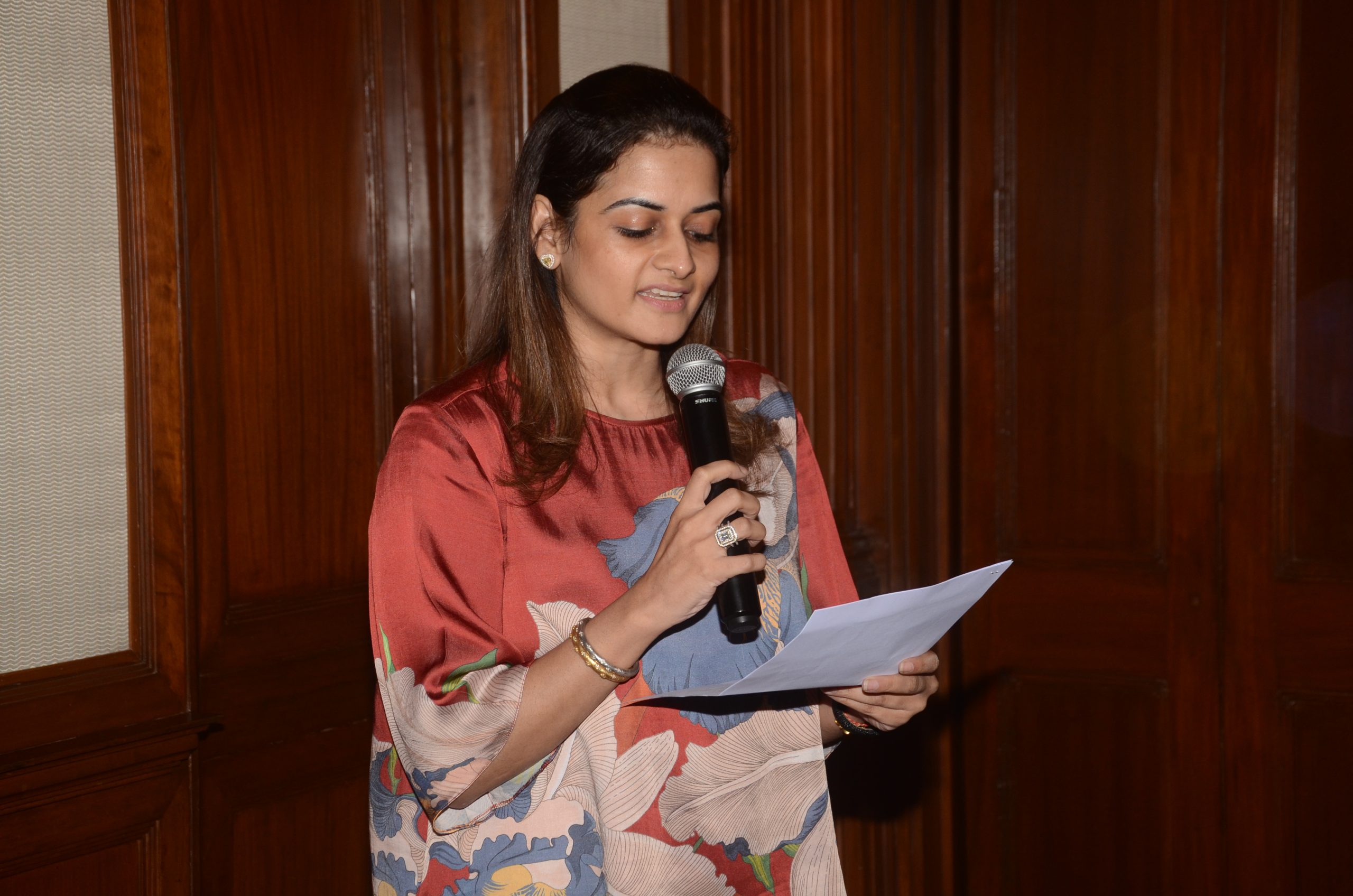Having served for 36 years in the Indian Foreign Service, Navdeep Suri is a noted diplomat who has been on India’s diplomatic missions to Cairo, Damascus, Washington, Dar es Salaam and London, and has served as India’s Consul General in Johannesburg.
Prabha Khaitan Foundation organised a session of An Author’s Afternoon in Kolkata with Suri, where he discussed global politics, diplomatic issues, the Jallianwala Bagh massacre and the turmoil in India after Partition, drawing from the legacy of his grandfather, Nanak Singh, the venerated Punjabi songwriter, novelist and poet. Suri was in conversation with the renowned businessman and entrepreneur, Manoj Mohanka. Shefali Rawat Agarwal, Ehsaas Woman of Kolkata, delivered the formal welcome speech and introduced the author and the moderator to the audience.
An ardent scholar and writer, Suri took it upon himself to translate several of his grandfather’s most renowned novels such as Pavitra Papi and Adh Khiria Phul, and also translated Singh’s lost poem, Khooni Vaishakhi. One of his latest works is the translation of Nanak Singh’s novel, Khoon De Sohile, into English, titled Hymns in Blood. Praising his expertise in translation, Mohanka observed that the author has managed to capture the soul of the original work, which provides important insights into the violence that took place during Partition.
“My grandfather struggled to support his family after the death of his own father,” remarked Suri. “My grandfather was born Hans Raj (a Hindu). He converted to Sikhism and, under the influence of a pious Sikh guru, took the name Nanak Singh. He had a talent for music and a penchant for verse. With the zeal of a new convert, he wrote a book of verses in praise of the Sikh gurus. The book, published in 1918, is called Satguru Mehma. This book of verses, set to the tune of popular songs back then, gained popularity and became his source of financial sustenance. He became famous, as his book sold lakhs of copies at that time.”
However, central to Nanak Singh’s experience was the Jallianwala Bagh massacre. In 1919, he was in Amritsar, and went to Jallianwala Bagh with two friends to protest against the Rowlatt Act. He was knocked unconscious in the stampede when the firing at the crowd started. Nanak Singh lost his two friends to the tragedy, and was left among the dead. He walked away from there, and, after recovery, wrote a long, heart-wrenching poem called Khooni Vaisakhi. It was first published in May 1920, and was immediately banned. After its absence from the public eye for 60 years, Suri translated the book in 2020, on the centenary year of the massacre.
Suri followed up this recounting of history with excerpts from Khooni Vaisakhi: A Poem from the Jallianwala Bagh Massacre,1919, which starts with an invocation to Guru Gobind Singh. “When Nanak Singh wrote this poem on the Jallianwala Bagh massacre, he knew that he was writing for posterity,” said Suri. “The poem is a chronological account of the first 14 days after the massacre in April 1919. It beautifully captures the mood of the city, from the time that the Rowlatt Act is brought into force to Gandhi’s call for satyagraha to protest against the Act, and the aftermath of the massacre. The poem also speaks of the stories of brotherhood between the Hindu, Sikh and Muslim communities, which now seem to be on the wane.”
The session came to a close with the author participating in a Q&A round with the audience. Agarwal delivered the formal vote of thanks on behalf of the Foundation, while Suri and Mohanka were felicitated by the author and poet Mrityunjay Kumar Singh.

